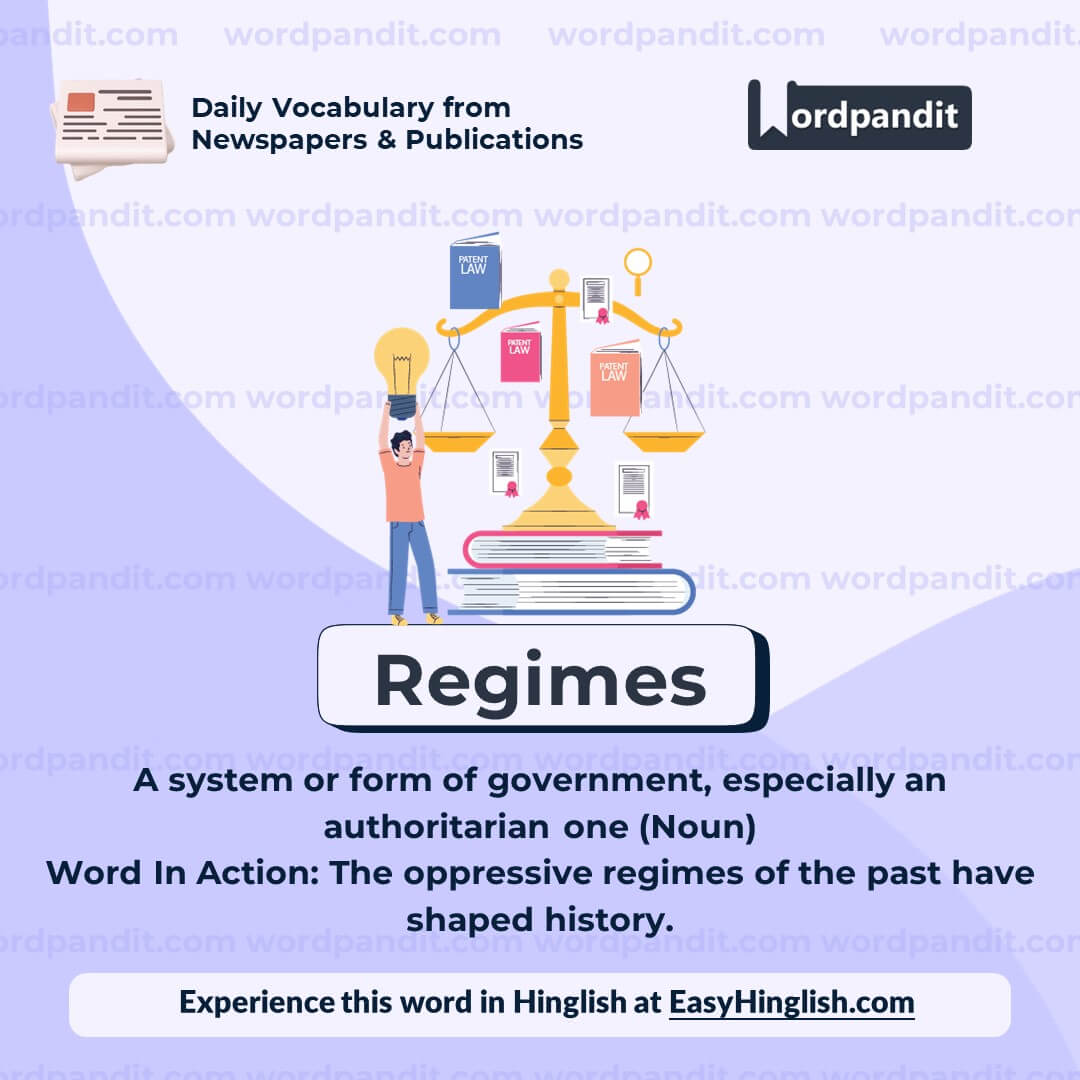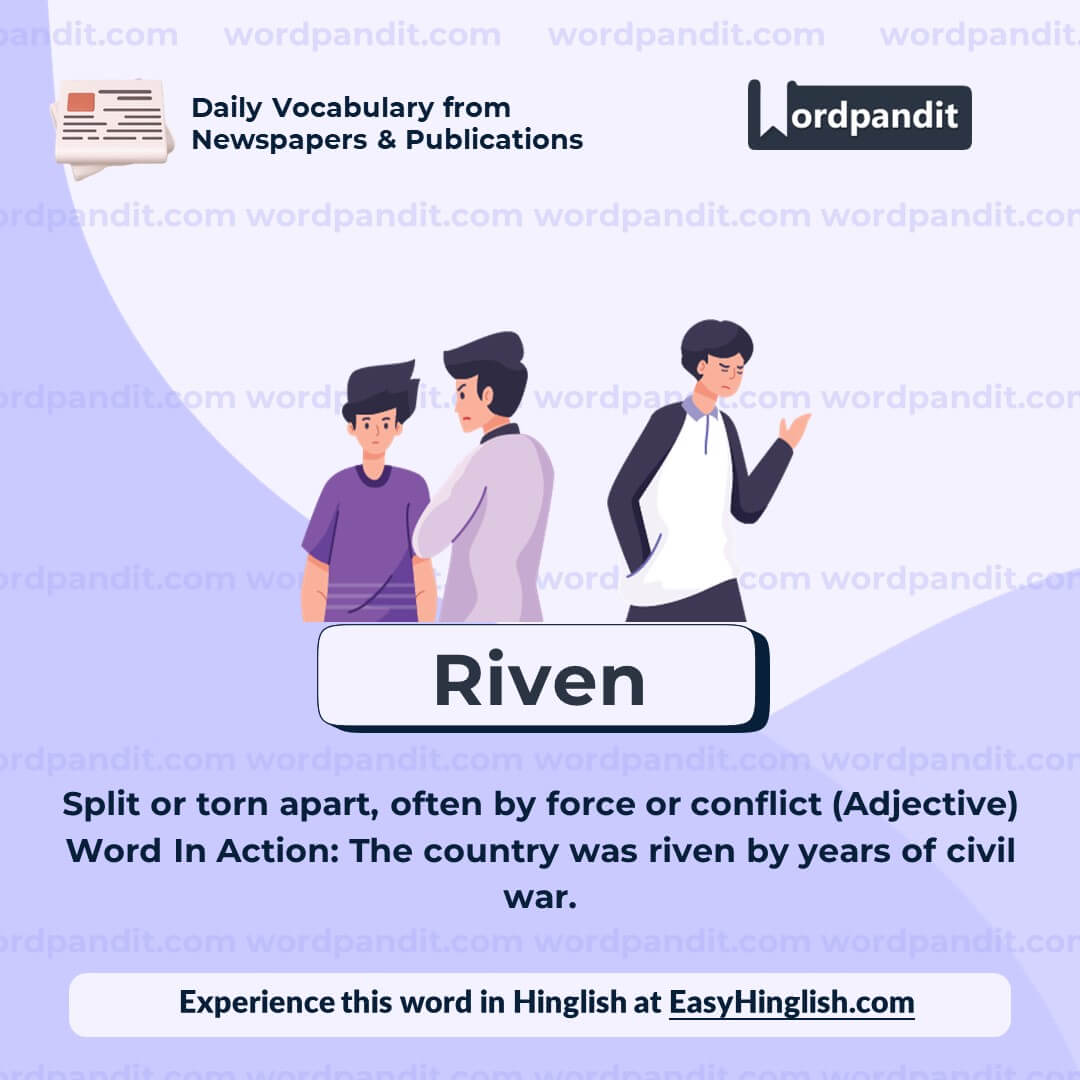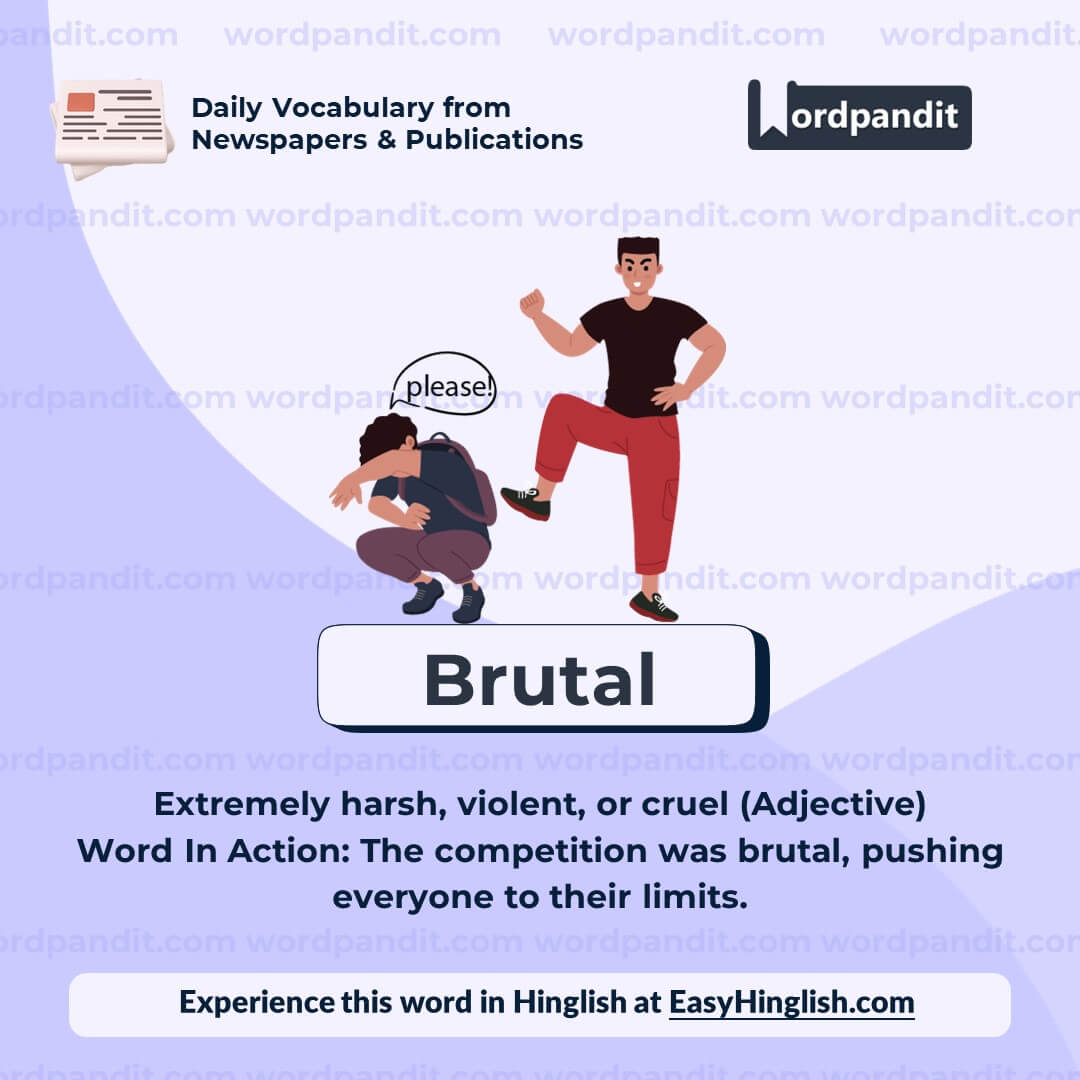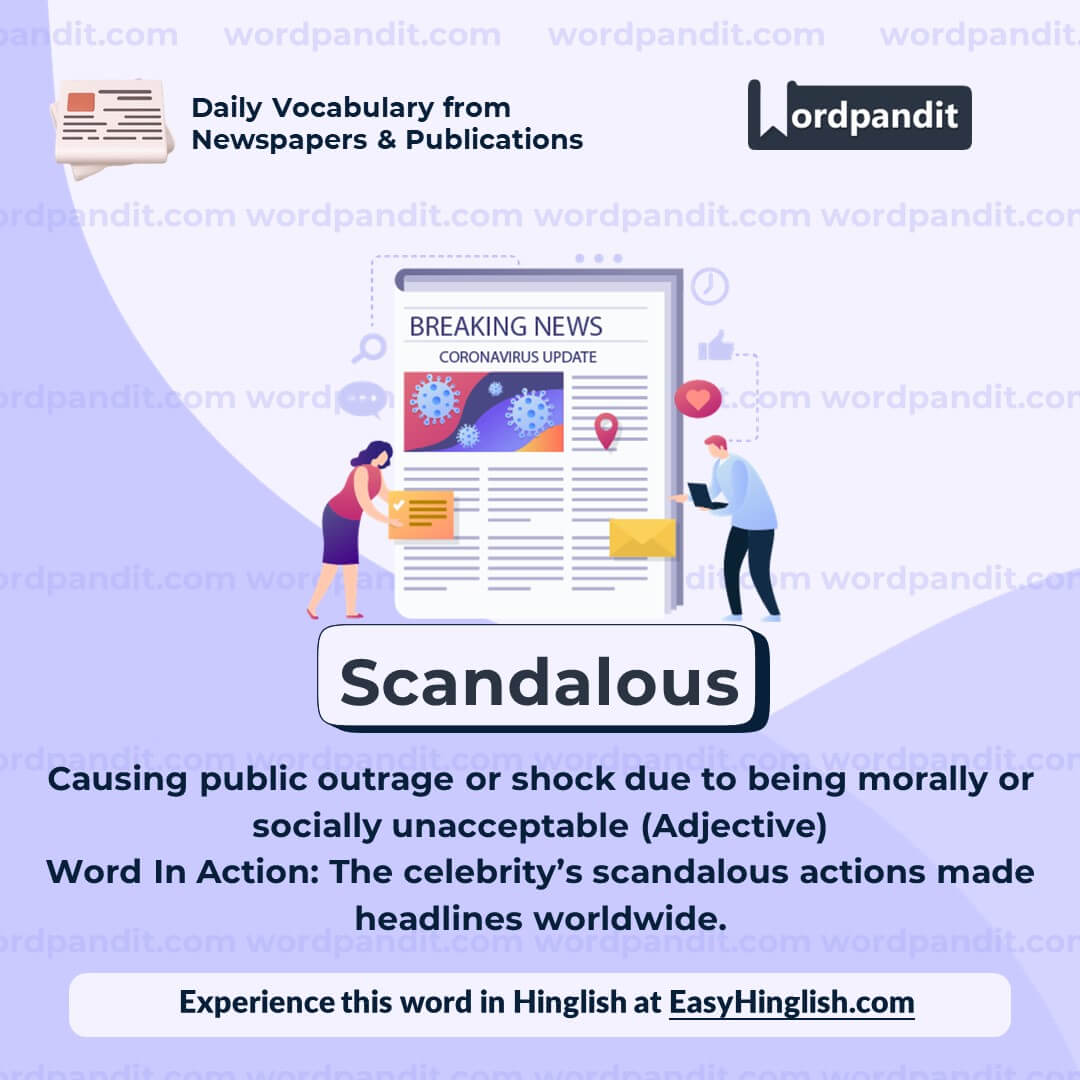Daily Vocabulary from International Newspapers and Publications
Expand Your Vocabulary with Wordpandit’s Global Vocabulary Hub
At Wordpandit, we are committed to helping you develop a truly global vocabulary by drawing from some of the most respected international publications. This section is designed to keep you ahead of the curve by introducing you to words that define global conversations and trends.
The Power of Global Sources
To help you think and communicate on a global scale, we curate vocabulary from renowned international sources, such as:
- The New York Times
- The Washington Post
- BBC
- The Guardian
- The Economist
- Scientific American
- Psychology Today
- And many more...
Stay Global, Stay Competitive
Our daily updates from international publications ensure you are consistently exposed to new words that reflect global news and developments, making sure your vocabulary is not only current but also globally relevant.
Enhance Your Global Perspective
Whether you’re preparing for international exams, aiming to excel in global business communication, or want to enhance your language skills for personal growth, Wordpandit offers the resources you need to thrive in a global context.
Effective Learning, Global Reach
Our learning methodology combines global examples, memory aids, and interactive activities, allowing you to internalize new words effectively and apply them in real-world scenarios.
Begin Your Global Vocabulary Journey Now!
Why Choose Wordpandit?
Practical Learning: Focus on words you'll actually encounter in real-world reading, enhancing your comprehension and communication skills.
Diverse Content: From current affairs to scientific breakthroughs, our varied sources expose you to vocabulary across multiple domains.
Effortless Integration: Make Wordpandit a part of your daily routine. Just a few minutes each day can significantly boost your lexicon over time.
Your Path to Vocabulary Mastery
- Visit our Daily Vocabulary section regularly
- Explore new words and their usage in context
- Practice incorporating these words into your own writing and speech
- Track your progress as your vocabulary expands
Start Your Journey Today
Embark on your vocabulary enhancement journey with Wordpandit. By consistently engaging with our daily posts, you'll build a robust vocabulary that serves you well in academic, professional, and personal contexts.
Remember, a word a day keeps linguistic limitations at bay. Make Wordpandit your daily companion in the quest for vocabulary excellence!
WORD-1: Regimes
Context:
"Throughout most of human history, people lived under oppressive non-democratic regimes." - BBC
Explanatory Paragraph:
The term "regimes" generally refers to systems or forms of government, particularly those that control or rule a country. While it can be neutral, it often carries a negative connotation when used to describe authoritarian or oppressive governments. A regime dictates the political, economic, and social structures of a nation, influencing the rights and freedoms of its people.
Meaning: A system or form of government, especially an authoritarian one. (Noun)
Pronunciation: ruh-ZHEEM
Difficulty Level: ⭐⭐⭐ Intermediate
Etymology: Derived from the French word "régime," meaning "system of rule," which originates from the Latin "regimen," meaning "direction" or "rule."
Synonyms & Antonyms:
Synonyms: Government, administration, authority, rule, leadership
Antonyms: Democracy, freedom, anarchy, self-rule
Usage Examples:
- Many oppressive regimes throughout history have suppressed freedom of speech.
- The new democratic government promised to replace the old corrupt regime with a fair system.
- Several international organizations monitor the human rights abuses of authoritarian regimes.
- The fall of the military regime led to a period of political instability in the region.
Cultural Reference:
"The collapse of the Soviet regime in 1991 marked a turning point in global politics." - History Channel
Think About It:
How do different regimes shape the culture and daily lives of their citizens?
Quick Activity:
Research two different regimes in history—one democratic and one authoritarian. Compare their impact on human rights.
Memory Tip:
Think of "regime" as related to "reign," which also refers to rule or control over people.
Real-World Application:
The term "regime" is widely used in political discussions, international relations, and historical analysis to describe different systems of governance and their effects on societies.
WORD-2: Riven
Context:
"Throughout history, the world has been riven by conflict." - BBC
Explanatory Paragraph:
The word "riven" describes something that has been violently split, torn apart, or deeply divided. It is often used metaphorically to describe societies, relationships, or nations that are fractured by conflict, disagreement, or unrest. The term conveys a sense of deep rupture, making it particularly powerful in political, social, and emotional contexts.
Meaning: Split or torn apart, often by force or conflict. (Adjective)
Pronunciation: RIH-vuhn
Difficulty Level: ⭐⭐⭐ Intermediate
Etymology: Derived from the Old Norse word "rīfa," meaning "to tear or split," which later influenced the Middle English word "riven."
Synonyms & Antonyms:
Synonyms: Torn, fractured, split, divided, shattered
Antonyms: United, whole, intact, undivided
Usage Examples:
- The country was riven by civil war, leaving its citizens in turmoil.
- The political party was riven with internal disputes, leading to its downfall.
- Her heart was riven with sorrow after the unexpected loss of her loved one.
- The once peaceful community became riven by religious and ethnic tensions.
Cultural Reference:
"The American Civil War left the nation deeply riven, with scars that lasted for generations." - National Geographic
Think About It:
What are some historical or modern examples of societies being riven by conflict?
Quick Activity:
Write a short paragraph using the word "riven" to describe a conflict in history or literature.
Memory Tip:
Think of "riven" as similar to "ripped"—both imply something torn apart.
Real-World Application:
The word "riven" is frequently used in news and historical analysis to describe societies, political parties, and families that are deeply divided due to conflict or ideological differences.
WORD-3: Brutal
Context:
"While the early 20th Century was especially brutal with two world wars in rapid succession, the post-war period has been very peaceful." - BBC
Explanatory Paragraph:
The word "brutal" describes something that is extremely harsh, violent, or cruel. It can refer to physical violence, emotional cruelty, or even difficult circumstances. The term is often used to describe wars, oppressive regimes, harsh weather conditions, or even brutally honest remarks. It conveys a sense of severity and mercilessness.
Meaning: Extremely harsh, violent, or cruel. (Adjective)
Pronunciation: BROO-tuhl
Difficulty Level: ⭐⭐ Beginner
Etymology: Derived from the Latin word "brutalis," meaning "like a beast," which stems from "brutus," meaning "heavy" or "dull."
Synonyms & Antonyms:
Synonyms: Cruel, harsh, savage, ruthless, merciless
Antonyms: Gentle, kind, compassionate, mild
Usage Examples:
- The brutal dictator ruled with an iron fist, suppressing all opposition.
- The soldiers endured brutal conditions during the long winter campaign.
- She gave a brutal but honest assessment of his performance.
- The brutal heat wave caused widespread power outages and water shortages.
Cultural Reference:
"The brutal battles of World War I left millions dead and reshaped global politics forever." - History Channel
Think About It:
Can brutality ever be justified? In what situations might people argue that it is necessary?
Quick Activity:
Think of a historical event or personal experience that could be described as "brutal." Write a short paragraph about it.
Memory Tip:
Think of "brutal" as being similar to "beast"—something wild, merciless, and fierce.
Real-World Application:
The word "brutal" is frequently used in news reports, sports commentary, and personal conversations to describe extreme conditions, harsh criticism, or acts of cruelty.
WORD-4: Ferrying
Context:
"As a succession of ambulances ferrying victims of the war between Israel and Hamas pull up outside the facility in the central town of Deir al-Balah, Zakaria clears a way through the crowds to retrieve newly arrived patients and rush them inside for treatment." - BBC
Explanatory Paragraph:
The word "ferrying" refers to the act of transporting people or goods from one place to another, often repeatedly. It is commonly used to describe vehicles, boats, or aircraft carrying passengers or cargo across distances. In emergency or conflict situations, "ferrying" can refer to the rapid movement of injured individuals, supplies, or aid workers to where they are needed most.
Meaning: Transporting people or goods from one place to another, often repeatedly. (Verb - Present Participle)
Pronunciation: FEH-ree-ing
Difficulty Level: ⭐⭐ Beginner
Etymology: Derived from the Old Norse word "ferja," meaning "to carry across water," which later became "ferry" in Middle English.
Synonyms & Antonyms:
Synonyms: Transporting, shuttling, carrying, conveying, transferring
Antonyms: Holding, retaining, keeping, grounding
Usage Examples:
- The helicopters were ferrying supplies to the flood-affected areas.
- The school bus is responsible for ferrying students between home and school.
- The rescue team worked tirelessly, ferrying the injured to nearby hospitals.
- Boats were ferrying tourists between the mainland and the island.
Cultural Reference:
"During the Dunkirk evacuation in World War II, civilian boats played a crucial role in ferrying soldiers across the English Channel to safety." - History Channel
Think About It:
How does ferrying play a crucial role in emergency situations, such as wars or natural disasters?
Quick Activity:
Write a short story about a pilot ferrying medical supplies to a remote village during a crisis.
Memory Tip:
Think of a "ferry" boat that repeatedly carries passengers back and forth—just like how "ferrying" means continuous transport.
Real-World Application:
"Ferrying" is widely used in discussions about transportation, emergency response, and logistics, especially in contexts involving humanitarian aid, military operations, and daily commuting.
WORD-5: Scandalous
Context:
"To most, Midgley’s attempt to discuss the relationship status of our most cherished philosophers would have been discarded as irrelevant, even scandalous." - Aeon
Explanatory Paragraph:
The word "scandalous" describes something that causes public outrage, shock, or strong disapproval, often due to being morally or socially unacceptable. It is commonly used in discussions about controversial events, behaviors, or revelations that violate societal norms. Whether referring to political corruption, celebrity gossip, or historical controversies, "scandalous" implies a sense of shock and potential disgrace.
Meaning: Causing public outrage or shock due to being morally or socially unacceptable. (Adjective)
Pronunciation: SKAN-duh-luhs
Difficulty Level: ⭐⭐ Beginner
Etymology: Derived from the Latin "scandalum," meaning "cause of offense," which passed into Old French as "scandale" and later into English as "scandalous."
Synonyms & Antonyms:
Synonyms: Shocking, disgraceful, outrageous, shameful, controversial
Antonyms: Respectable, honorable, decent, acceptable
Usage Examples:
- The politician’s scandalous behavior led to widespread criticism and his eventual resignation.
- The book exposed the scandalous affairs of high-ranking officials.
- Wearing such a revealing dress in the conservative town was considered scandalous.
- His scandalous remarks about the royal family caused a media frenzy.
Cultural Reference:
"The Watergate scandal in the 1970s was one of the most scandalous political events in American history, leading to President Nixon’s resignation." - History Channel
Think About It:
What makes an event or action truly scandalous—public perception or an actual breach of moral conduct?
Quick Activity:
Think of a historical or fictional event that was considered scandalous. Write a few sentences explaining why it was controversial.
Memory Tip:
Think of "scandalous" as related to "scandal"—both involve shocking or disgraceful events that attract attention.
Real-World Application:
The word "scandalous" is frequently used in media, politics, and history to describe shocking revelations, controversial behavior, and public disgrace.

















